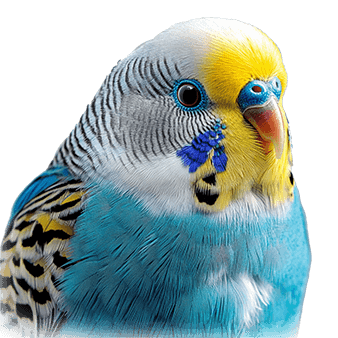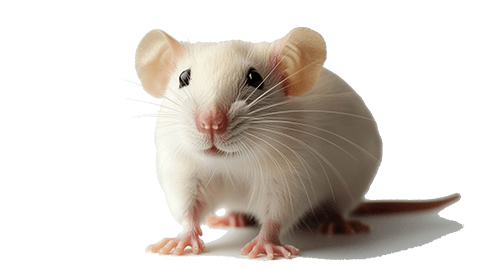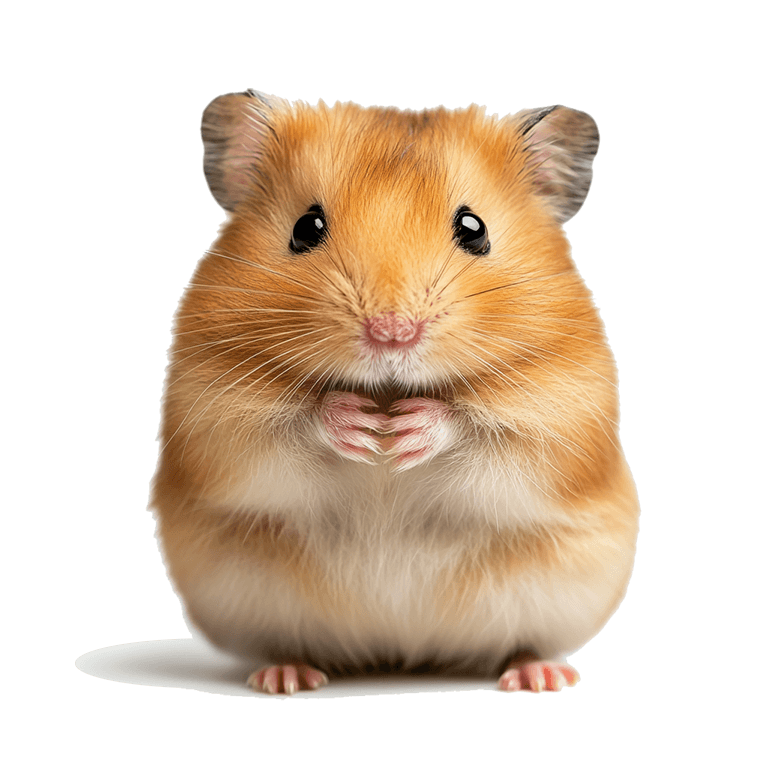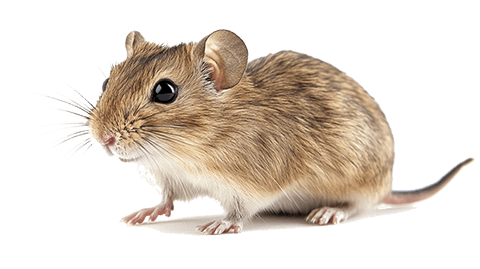Everything You Need to Know About Guinea Pigs: Little Pets with Big Personalities

Guinea pigs—small, squeaky, and absolutely adorable. These furry little creatures, also known as cavies, are a popular choice for pet lovers, especially for those who prefer smaller animals with lots of character. Despite their size, they have fascinating habits and quirks that make them stand out from the crowd of small pets. Whether you’re a new guinea pig owner or just considering one, here’s a deep dive into their behaviors, needs, and fun facts!
Basic Overview
Guinea pigs originally come from the Andes in South America—where they were domesticated as early as 5,000 years ago. They are social creatures, preferring to live in groups rather than alone. While they’re considered “small pets,” they can live for 5-7 years, and some can live even longer with proper care.
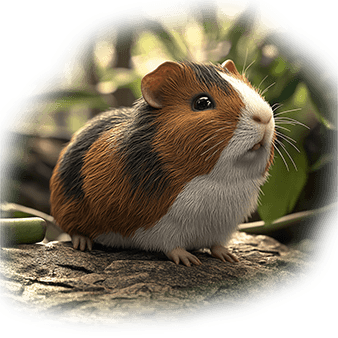
Feeding Habits – Grass, Veggies, and More
Guinea pigs are herbivores, which means their diet is entirely plant-based. Their main food is hay—fresh hay is absolutely essential because it aids digestion and keeps their teeth in check (their teeth grow constantly, and hay helps wear them down). Alongside hay, guinea pigs enjoy fresh vegetables like bell peppers, carrots, kale, and cucumbers. Leafy greens are a must, but some veggies, like spinach and cabbage, should be given in moderation due to high calcium levels.
They also need pellets designed specifically for guinea pigs—these provide additional vitamins, including Vitamin C. Fun fact—guinea pigs, like humans, can’t produce their own Vitamin C, so it’s crucial to give them foods rich in it or supplements to avoid scurvy.
Treat tip—they go crazy for small bits of fruit like apple, orange, and strawberries, but only in moderation due to sugar content!
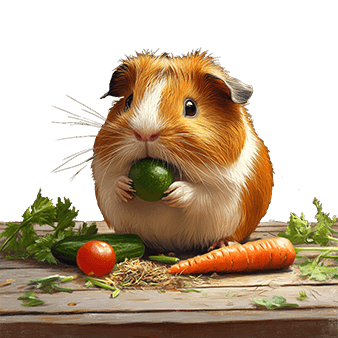
Sleeping Habits – Snooze Time
Unlike many animals, guinea pigs don’t have a strict day/night sleeping schedule—they’re known for taking lots of short naps throughout the day. On average, they sleep for 4-6 hours over a 24-hour period, but it’s broken up into tiny naps. These naps are quick because, in the wild, guinea pigs are prey animals, so they always remain on high alert. It’s not unusual to see your piggie dozing off with its eyes open—a habit born out of instinct!
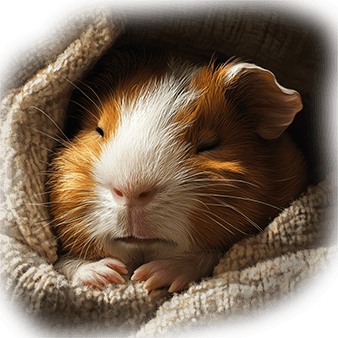
Activity Levels – Always on the Move
Guinea pigs are surprisingly active animals! While they love to cuddle, they also have bursts of energy where they’ll run around, explore, and do what’s known as “popcorning”—a funny and adorable jump that happens when they’re excited or happy. If you see your guinea pig randomly hopping in the air, that’s popcorning in action.
Providing them with a big enough cage is important so they have room to move around. They’ll also appreciate tunnels, hideouts, and toys to stimulate their natural curiosity. Don’t forget floor time! Letting them roam around in a safe space outside of their cage for a couple of hours a day will keep them fit and happy.
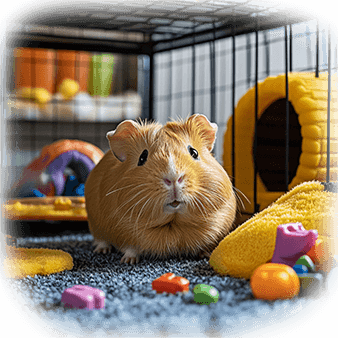
Social Habits – Bonding with Humans
Guinea pigs are very social, not just with each other but with humans too. They’re gentle and rarely bite, making them great pets for families, especially with kids. Over time, guinea pigs can learn to recognize their owners by sound and scent, and they’ll often squeak or “wheek” in excitement when they hear you nearby—especially if they think you’re bringing them food!
Guinea pigs communicate through various sounds—soft purring when they’re content, loud squeaking for attention, and teeth chattering when they feel threatened. Pay attention to these sounds to understand how they’re feeling.
Interesting fact—guinea pigs can develop strong bonds with their owners and can even get lonely without enough interaction. That’s why it’s often recommended to get guinea pigs in pairs or groups so they can keep each other company.
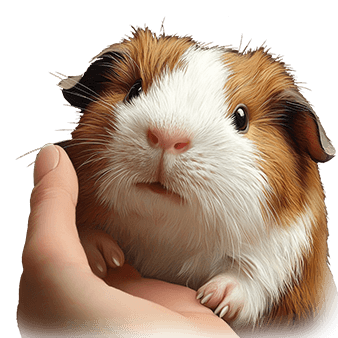
Guinea Pig Breeds – Who’s Who?
There are several different types of guinea pigs, each with unique looks and personalities.
- American guinea pig—This is the most common breed, and they’re known for their short, smooth coats. They’re easy-going and easy to care for.
- Abyssinian guinea pig—These have a more dramatic look, thanks to their rosettes (swirls of fur) that give them a spiky appearance. They tend to be a bit more energetic and curious.
- Peruvian guinea pig—If you like long-haired animals, this one’s for you. Peruvians have flowing hair that requires regular grooming to keep it from tangling, but they’re some of the most laid-back of the breeds.
- Teddy guinea pig—With short, dense fur that feels like a teddy bear, these guys are perfect if you love a soft pet! They’re known to be calm and gentle.
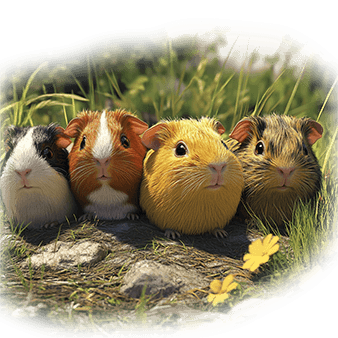
Each breed has its own care needs, so make sure to pick one that fits your lifestyle.
Fun Facts About Guinea Pigs
- They have unique teeth—Guinea pigs’ teeth never stop growing. That’s why hay is so important—it helps grind them down naturally!
- They’re talkative—Guinea pigs are very vocal compared to other small animals. If you pay attention, you’ll notice different types of noises for different situations.
- Popcorning is their way of showing joy—If you’ve never seen a guinea pig “popcorn,” you’re missing out. It’s a burst of energy where they leap into the air, often out of pure excitement!
- Their hearing is better than yours—Guinea pigs can hear sounds at much higher frequencies than humans. That’s why they’ll often perk up when they hear crinkling bags—they associate it with food.
- Great memory—Guinea pigs can remember paths and routes, which is why they’re great at navigating mazes or getting back to their favorite spots in their cage.
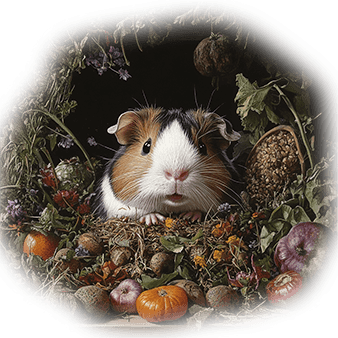
Care Tips for Happy Guinea Pigs
- Keep them in pairs—Guinea pigs are herd animals, so they do best with another guinea pig to keep them company. Just make sure to introduce them properly if you’re bringing a new piggie into the mix.
- Clean their cage regularly—A clean cage is essential for their health. Spot-clean every day and do a full clean-out once a week.
- Handle with care—They’re fragile and have sensitive backs, so always support their body fully when picking them up.
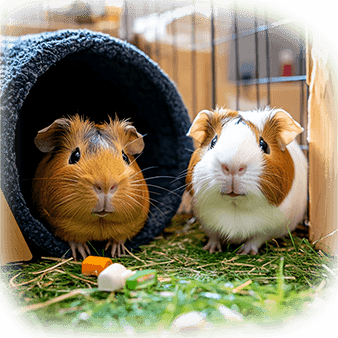
Final Thoughts – Why Guinea Pigs Make Great Pets
Guinea pigs are much more than just little furballs—they’re affectionate, quirky, and endlessly entertaining. Their gentle nature makes them ideal pets for people of all ages, and they’re relatively low-maintenance once you get the hang of their care routine. With the right environment, proper nutrition, and plenty of attention, guinea pigs can be loyal companions that bring joy to your home for years.
Whether you’re thinking about getting one or you’ve already brought a guinea pig into your life, you’ll quickly see how these little creatures pack a whole lot of personality into their small frames!
Further reading: “Guinea Pigs: The Complete Guide: Guinea Pig Care, DIY Toys, Popcorning, Guinea Pig Supplies” (Amazon affiliate link) by Sicilia Talia.
Affiliate Disclosure
This post may contain affiliate links, which means I earn from purchases made through links. Please see the privacy policy page for more details.

